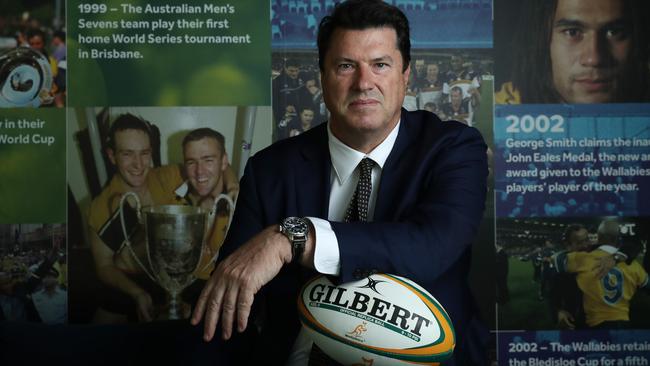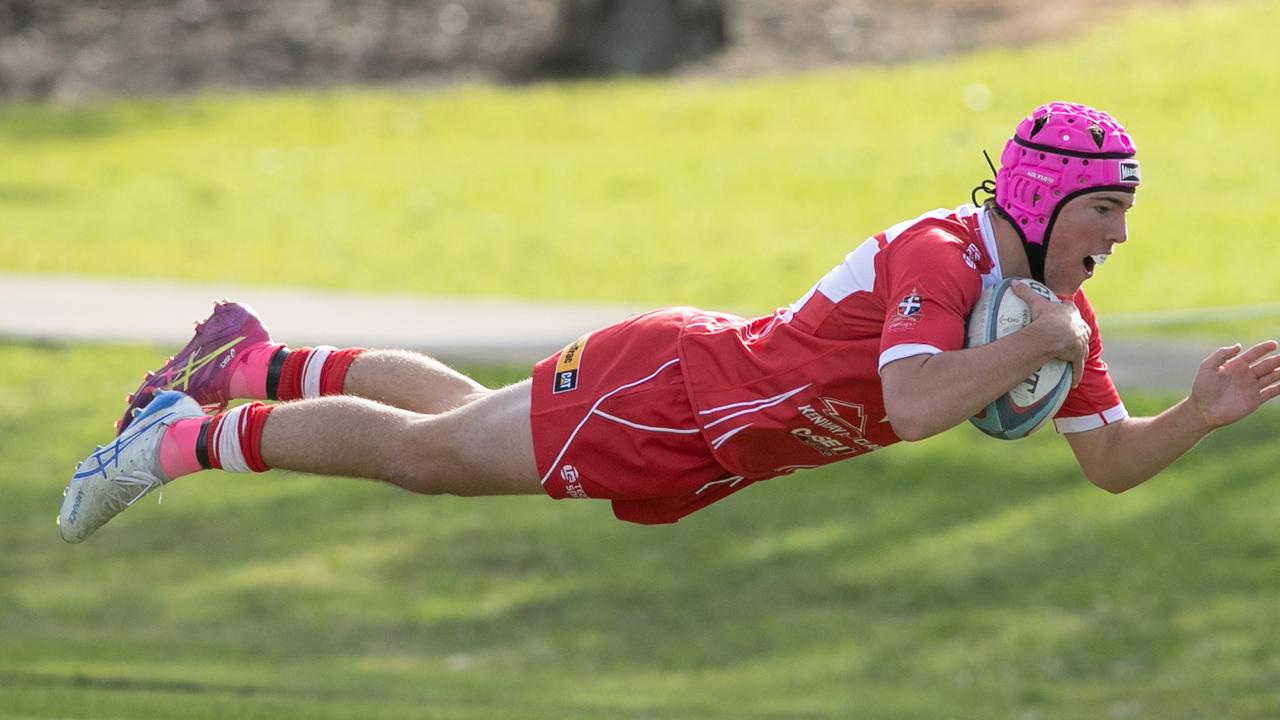Waratahs agree to RA centralisation program
Two Super Rugby clubs are becoming increasingly isolated after historic deal struck between NSW Waratahs and Rugby Australia.

A major domino has fallen in Rugby Australia’s ambitious program to centralise the sport and make it a force again on the national and world stage.
Following the Wallabies’ botched World Cup campaign, where they failed to make it out of the group stage for the first time, the NSW Rugby Union (NSWRU) has agreed to cede control of key parts of its organisation to the governing body.
The agreement will see Rugby Australia take responsibility for the operations of the Waratahs’ professional rugby entities from January 1, including the Tahs’ high-performance operations, assets, liabilities and commercial arrangements.
NSWRU will continue to oversee the game at community level and deliver programs designed to grow participation.
While the NSWRU has agreed to the deal, its fellow states are yet to commit, with Queensland and the ACT both expressing outright opposition towards RA’s plan to centralise.
Rugby Australia chair Hamish McLennan praised the NSWRU for being the first state to commit to the new “strategic reset”.
“This is probably the biggest structural change for rugby in Australia in over 100 years,” McLennan said.
“This puts us on the road to modernising and aligning our high performance program and to bring it in line with other Tier One nations like Ireland and New Zealand.
“This is critical as we lead into a home World Cup in 2027.”
Former Wallabies coach Eddie Jones, who resigned after a 10-month tenure, said Australia’s inability to align its high performance system was one of the major aspects holding the country back and cited it as a reason for his exit.
The Waratahs will be governed by a separate board comprising representatives nominated by NSWRU and RA and its current chief executive Paul Doorn welcomed the move, agreeing that “self interest” had been holding the game back.
“We are taking this bold step because we strongly believe the federated model for professional rugby in Australia is unsustainable and that meaningful reform is long overdue,” Doorn said.
“We are committed to the removal of the inherent conflicts and self-interest that have constrained meaningful progress in the past, and we are committed to the alignment of the high-performance and commercial operations between our club and Rugby Australia.
“I appreciate questions will be asked about the level of trust and confidence in RA’s ability to fully realise the benefits of integration. These are important questions – however our decision reflects a commitment to deal with any such concern ‘inside the tent’, playing an active role in the most collaborative way possible.
“We are not content to sit on the sidelines any longer on this much-needed reform, and I hope all Super Rugby clubs will follow our lead as we push forward on an aligned Australian rugby ecosystem.”
Last month, Queensland Rugby Union boss Dave Hanham told Radio 4BC that his state had no interest in handing any of their operations over to RA.
“In short we’ve worked hard to strengthen our balance sheet … our view is that there is an advantage of having good strong local knowledge in how you drive your local business, that doesn’t mean we won’t work with Rugby Australia,” Hanham said.




To join the conversation, please log in. Don't have an account? Register
Join the conversation, you are commenting as Logout